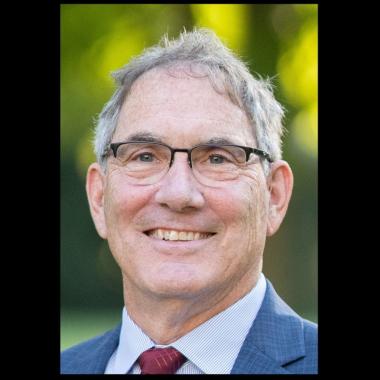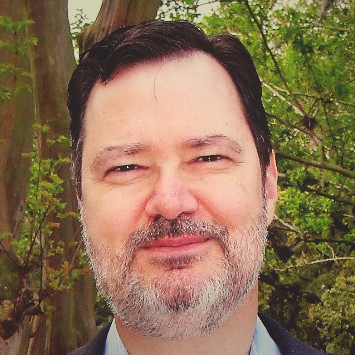Join the South Texas Section for our monthly dinner meeting. This event is on the topic of Bioengineering and Biomanufacturing. We will have two talks on the topics of Monoclonal Antibodies and Lipid Engineering. This event will be In-Person only with no virtual web casting option available. The location will be announced shortly.
Agenda
- 5:00 pm -6:00 pm Workshop - Lipid Engineering to Benifit Human Health
- 6:00 pm - 7:00 pm Dinner
- 7:00 pm - 7:30 pm Announcements & Awards
- 7:30 pm - 8:30 pm Keynote Presentation - Monoclonal Antibodies – An Industry Comparable in Size to ExxonMobil
Dinner Registration
Workshop (1 PDH by STS)
Topic
Lipid Engineering to Benefit Human Health
Abstract
Lipids are an important component of the biosphere and are the primary energy storage molecules in animal cells. “Lipid Engineering” involves using chemical and biochemical methods to enhance the properties of these molecules and unlock their therapeutic potential. One example is the production of Enzyme Modified Oils (EMO), which can provide significant benefits to nutritionally compromised individuals, such as Cystic Fibrosis and Pancreatic Cancer patients. Recent successful clinical trials have demonstrated this in humans and animals. Different EMOs have enhanced surfactant and emulsifier properties, turning them into potent, selective antimicrobial compounds. A recent successful clinical trial showed how these can be used to alter the microbiome of skin lesions on Atopic Dermatitis (Eczema) patients and significantly improve the health of the skin. There are many potential opportunities for these specially “reengineering” lipids once they have been customized for different applications.
About the Speaker

Dr. Monticello is the co-founder and vice president of R&D at GlycosBio Inc., a biotechnology company in the Texas Medical Center in Houston. The company is focused on using chemical and biochemical technologies to unlock the therapeutic potential of natural materials. Dan has 30+ years of experience in Industrial Biotechnology, Synthetic Biology and Process Scale-up. His experience ranges from the microliter scale in the lab to the megaliter scale in industrial fermentations, including developing lab-to-commercial-ready processes for the bioproduction of industrial enzymes, lactic acid, isoprene, Enzyme Modified Oils and other industrial chemicals. He is inventor or co-inventor on 25 issued US patents and has conducted several successful clinical trials. Prior to joining GlycosBio, Dr. Monticello served in a variety of research, bio-engineering and management positions with two biotech start-ups, (one focused on the biodesulfurization of crude oil and the other on the protein engineering of human growth factors to create new anti-cancer therapeutics) and a large biochemical company (Bayer, Inc.).
Dr. Monticello obtained his B.S. degree from the University of Michigan, and (despite some cognitive dissonance) his M.S. and Ph.D. degrees from Michigan State University. He completed his post-doctoral training at the University of Georgia. He is also a successful amateur winemaker, producing award-winning Pino Grigio and Zinfandel.
Keynote Presentation (1 PDH by STS)
Topic
Monoclonal Antibodies – An Industry Comparable in Size to ExxonMobil
Abstract
Antibodies are proteins in the blood that bind to invaders such as viruses and bacteria; most top-selling drugs are now antibodies or derivatives. The “antibody revolution” in recombinant DNA technology now allows the development of antibodies with fully- human sequences (human monoclonal antibodies, “mAbs”). These can be therapeutics by binding to cancer cells, or to the proteins mediating Alzheimer’s disease, psoriasis, rheumatoid arthritis, SARS-CoV-2, Crohn’s, etc. Over 100 antibody drugs are now approved by the US FDA, and they are ubiquitous in late-night television advertising (look for a long, strange name ending in “mab”). This talk will discuss the processes used to make mAbs, and Gates Foundation efforts to reduce the manufacturing costs of these medicines to make them more widely available, including for malaria prophylaxis in sub-Saharan Africa.
About the Speaker

Richard C. Willson is the Huffington-Woestemeyer Professor of Chemical & Biomolecular Engineering, Biology & Biochemistry, and Biomedical Engineering at the University of Houston, and a Senior Affiliate of The Houston Methodist Hospital Research Institute. He holds B.S. (honors) and M.S. degrees in Chemical Engineering from Caltech and completed his Ph.D. in Biochemical Engineering and postdoctoral studies in Biochemistry at MIT. Dr. Willson is the recipient of the Presidential Young Investigator Award under the first Bush administration, and an elected Fellow of the AIMBE, ACS, and AAAS. He is a member of the National Academy of Inventors, was CTO of Visigen which built the first system for single-molecule sequencing-by-synthesis, was on the founding Technical Advisory Board of Moderna from 2012, and served for a time as interim Associate VP for Technology Transfer of the University of Houston, then the non-medical public university with the largest patent royalty income in the US. His research interests are in medical diagnostics and the purification of biological molecules.
- Log in to post comments
